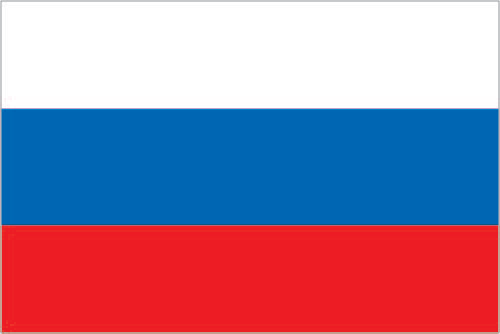Last update images today Russia On The World Map: A Current Perspective
Russia on the World Map: A Current Perspective
Introduction: Russia in World Map
Russia's presence on the world map is undeniable, a vast expanse stretching across two continents. But its position - geographically, politically, and economically - is constantly evolving, especially in the current global climate. This article explores Russia's multifaceted role on the world map, addressing its history, present challenges, and potential future, aiming to provide a comprehensive and informative overview. This analysis is specifically crafted to be informative, educational, and a solid reference point for understanding Russia's standing.
Target Audience: Students, researchers, policymakers, journalists, and anyone interested in international relations, geography, and current events.
Russia in World Map: A Historical Overview

Caption: A geographical representation of Russia on the world map, highlighting its vast territory.
Russia's history is inextricably linked to its geographical location. From the early Slavic settlements to the rise of the Tsardom and the subsequent expansion across Siberia, the country's growth has been defined by its landmass. The Russian Empire's influence stretched across Eastern Europe, Central Asia, and the Caucasus. The Soviet Union, a successor state, further cemented Russia's presence on the global stage as a superpower, wielding significant political and military influence. Understanding this historical context is crucial for grasping Russia's current ambitions and anxieties.
Russia in World Map: Geography and Resources
Russia's sheer size is a defining factor. Spanning eleven time zones, it boasts diverse landscapes, from the arctic tundra to the steppes of southern Russia. This vast territory is rich in natural resources, including oil, natural gas, timber, and minerals. These resources play a vital role in the Russian economy and exert considerable influence on its foreign policy. Russia's control over energy supplies, particularly natural gas, has been a key tool in its interactions with Europe. However, dependence on these resources also makes the Russian economy vulnerable to fluctuations in global commodity prices.
Russia in World Map: Political and Economic Landscape

Caption: The flag of the Russian Federation.
The collapse of the Soviet Union in 1991 dramatically reshaped Russia's position on the world map. The transition to a market economy was turbulent, marked by privatization, corruption, and economic hardship. Under Vladimir Putin, Russia has sought to reassert its influence, both domestically and internationally. This has included strengthening the state's control over key industries, modernizing the military, and engaging in assertive foreign policy. Russia's relationship with the West has become increasingly strained in recent years due to disagreements over Ukraine, Syria, and alleged interference in foreign elections. Economically, Russia is a major player in the energy market, but it is also striving to diversify its economy and reduce its dependence on natural resources.
Russia in World Map: Current Challenges and Opportunities
Russia currently faces a complex set of challenges. International sanctions imposed in response to its actions in Ukraine have impacted the Russian economy. Domestically, issues such as corruption, income inequality, and an aging population pose significant hurdles. However, Russia also has opportunities to leverage its strengths. Its vast natural resources, strong military, and strategic location offer potential for future growth and influence. Investing in technology, education, and infrastructure could help Russia diversify its economy and improve its long-term competitiveness.
Russia in World Map: Impact of the Ukraine Conflict
The ongoing conflict in Ukraine has fundamentally altered Russia's standing on the world map. Widespread condemnation and sanctions have isolated Russia from much of the international community. The war has also had a devastating impact on the Ukrainian economy and society. The long-term consequences of the conflict for Russia's political and economic future are still uncertain, but it is clear that the conflict represents a major turning point in Russia's relationship with the rest of the world.
Russia in World Map: Cultural Influence and Soft Power
Caption: Russian ballet dancer performing on stage, representing Russia's significant cultural contribution.
Beyond its political and economic power, Russia also exerts cultural influence through its rich artistic traditions. Russian literature, music, ballet, and cinema have had a profound impact on the world. The country is home to world-renowned museums, theaters, and universities. Russia also uses cultural diplomacy and media outlets like RT (formerly Russia Today) and Sputnik to promote its narrative and influence public opinion abroad.
Russia in World Map: Future Trajectories
The future of Russia's position on the world map is uncertain. Several factors will shape its trajectory, including the outcome of the conflict in Ukraine, its relationship with the West, its economic development, and its internal political dynamics. Whether Russia can successfully navigate these challenges and leverage its strengths will determine its role in the 21st century.
Question and Answer
-
Q: What is Russia's main source of economic strength?
- A: Russia's main source of economic strength is its vast reserves of natural resources, particularly oil and natural gas.
-
Q: What are some of the major challenges Russia faces today?
- A: Russia faces challenges including international sanctions, corruption, income inequality, and an aging population.
-
Q: How has the Ukraine conflict impacted Russia's position on the world map?
- A: The conflict has led to widespread condemnation and sanctions, isolating Russia from much of the international community.
-
Q: Besides politics and economics, how else does Russia influence the world?
- A: Russia wields cultural influence through its rich artistic traditions and cultural diplomacy.
Keywords: Russia, World Map, Ukraine Conflict, Russian Economy, Putin, International Relations, Natural Resources, Sanctions, Foreign Policy, Cultural Influence, Soft Power, Geography, History, Russia in world map, Russia Ukraine.
Summary Question and Answer: Russia's role on the world map is shaped by its vast size, rich resources, historical influence, and current geopolitical challenges, particularly the conflict in Ukraine. Key questions include its economic reliance on resources, the impact of sanctions, and its cultural influence globally.

